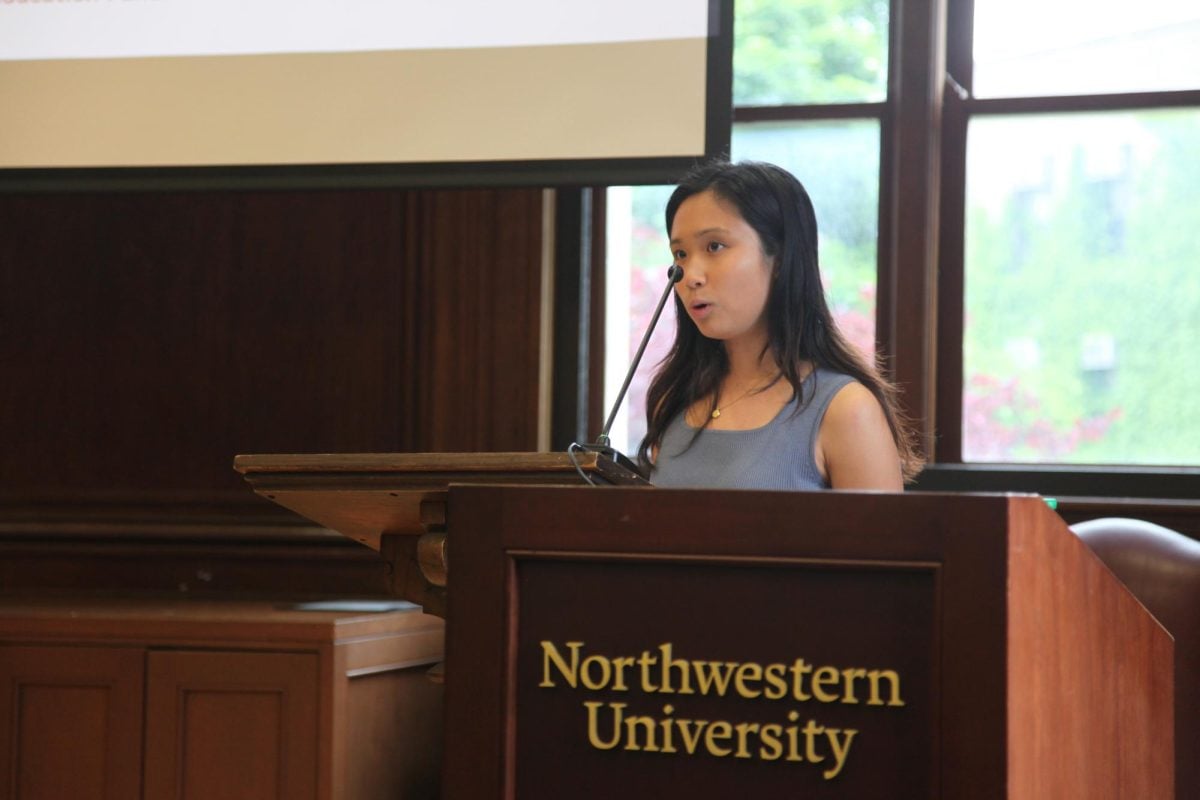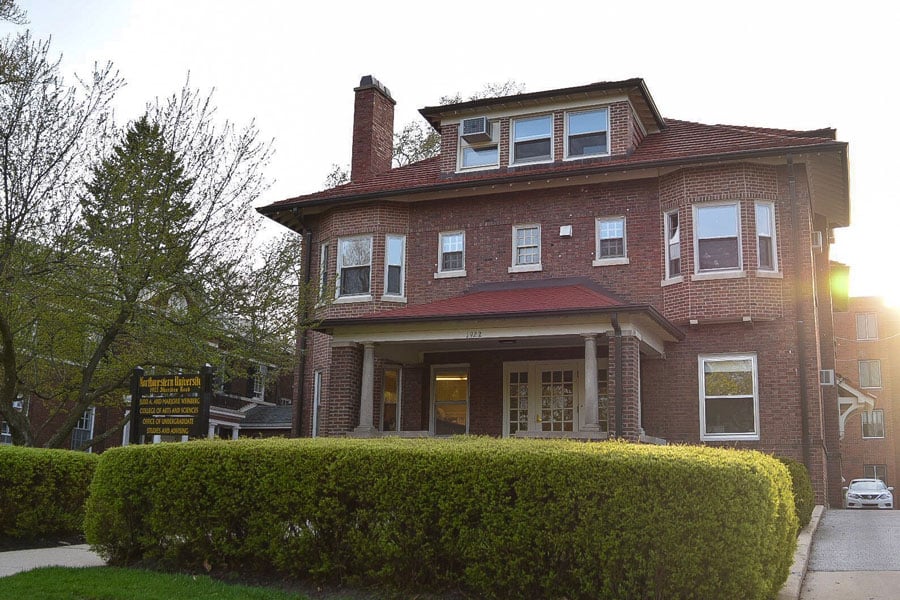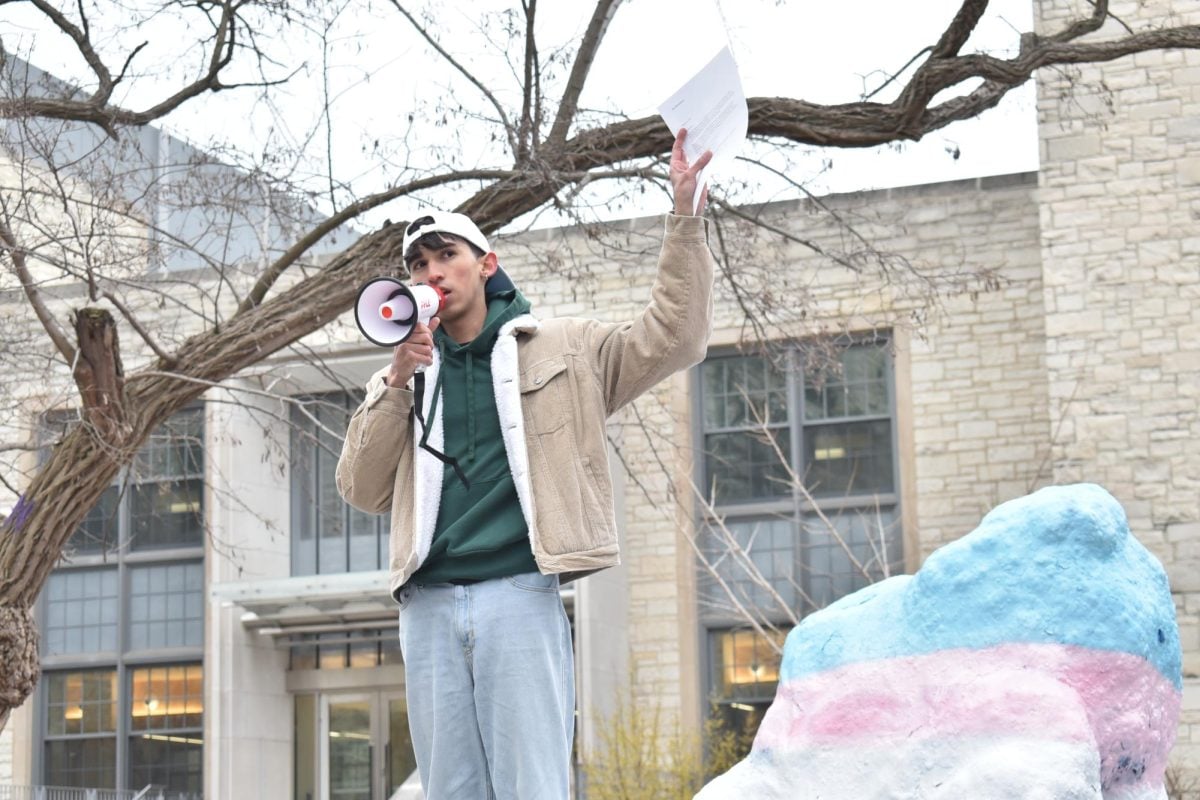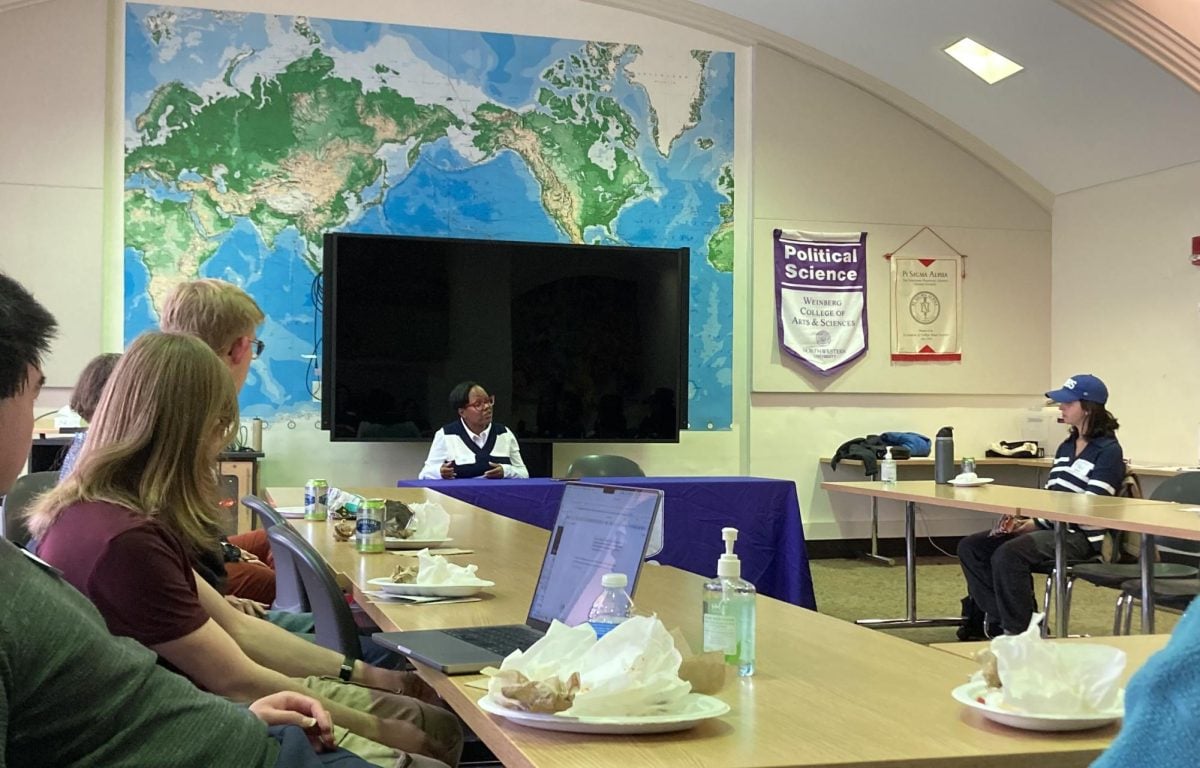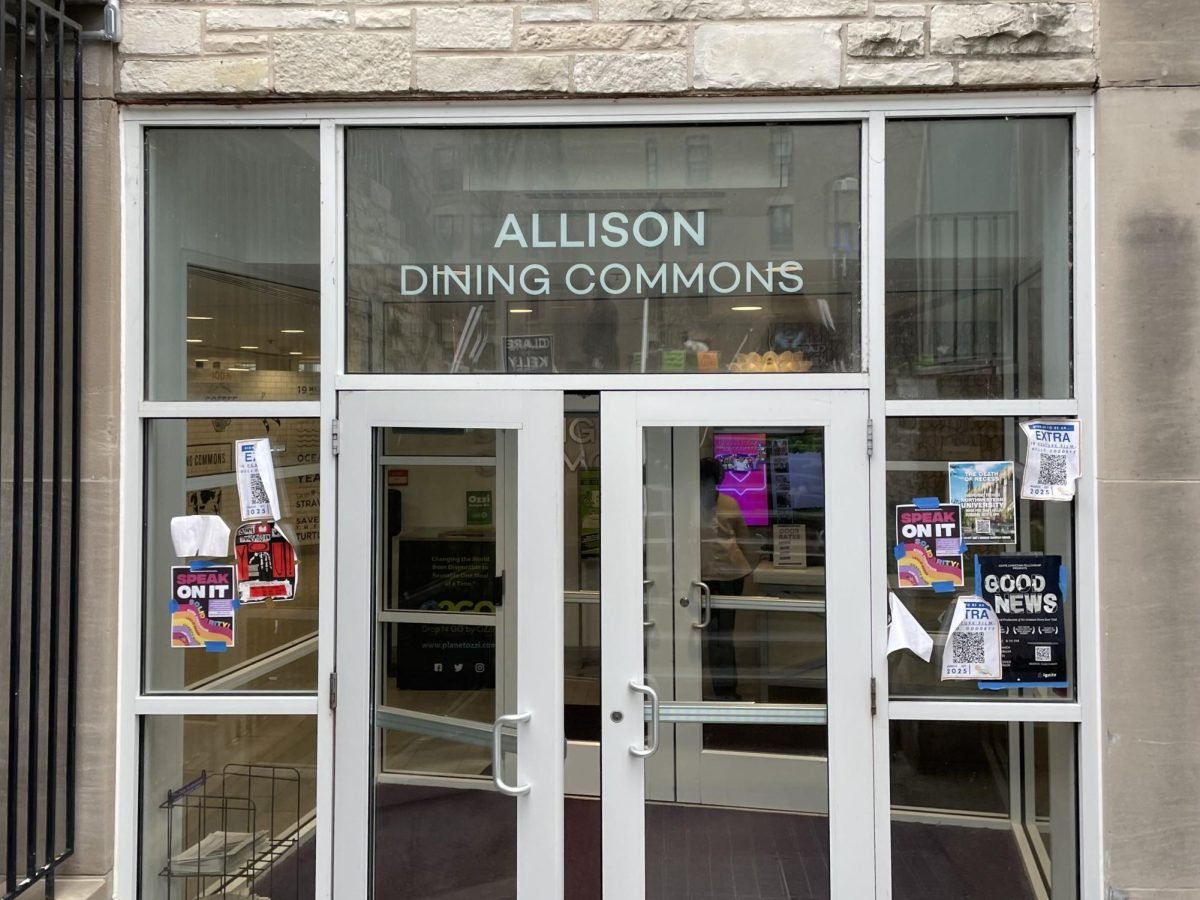Community members gathered at Harris Hall to hear Asian American Studies Program students showcase their theses and capstone projects at the annual senior symposium Monday.
A panel of four seniors presented their research on everything from Generation Z Asian American voting habits to ways to improve elder care for Asian Americans. Attendees were given the chance to ask questions following each presentation.
For her project, Weinberg senior Lena Rhie examined the opinions of Asian Americans following last year’s Supreme Court decision to rule race-based affirmative action admission policies as unconstitutional.
Through close examination of amicus briefs filed by Asian American interest organizations, Rhie said many organizations struggled to consider both factors of racial diversity and discrimination in the discussion of overturning race-conscious policies.
“I argue that, in order to advance Asian American civil rights, as these organizations have set out to do, we must look outside of the legal system and have more nuanced conversations about diversity and discrimination beyond that,” Rhie said.
Rhie said many colleges and universities included a diversity statement in this year’s college admission application cycle to give students more autonomy over what information to reveal to admissions officers.
She said she plans to work in a college admissions office in the future, where she hopes to create change in the application process by understanding the decisions made.
Weinberg senior Neha Ramani presented her research on the voting habits of Gen Z Asian Americans at Northwestern through a compilation of student interviews.
“I chose this demographic specifically because I noticed the gap in the existing literature on the political habits and motivations of both Gen Z and Asian Americans,” Ramani said. “These are understudied demographics.”
Ramani surveyed study participants on pan-ethnic identity, political needs and representation. As Gen Z Asian Americans become a growing voter bloc, many students revealed their desire to vote to see their values and interests represented in their government, she said.
However, Ramani said many respondents did not find the term Asian American “politically useful” because they did not see a “clear bloc of Asian American specific voting issues,” which influence the treatment of other marginalized groups.
Weinberg senior Suzie Bian also discussed her thesis on how to navigate elder care for Asian Americans in the U.S. Investigating literary and film representations of Asian American elder care, she emphasized the need for cultural humility, rather than cultural competence, for treatment methods used by healthcare professionals.
Bian added that practicing cultural humility requires practitioners to acknowledge a patient’s history, identity and background, and allows room for storytelling and preservation of memories.
Panel members, including Medill senior and former Daily staffer April Li, mentioned that they have been involved in AASP since their freshman year.
Li’s project entailed a literary analysis of historical fiction novels about the 1989 Tiananmen Square Protests written by North American sino-diasporic authors. In novels like “Little Gods” and “Do Not Say We Have Nothing,” Li examined the topics of time, memory and silence within diasporic Asian American politics.
“I hope this can bring us to see these narratives and doorways upon each other that allows us to move between moments in time and space and revisit the past,” Li said.
Email: jerrywu2027@u.northwestern.edu
X: @Jerrwu
Related Stories:
— Fourth annual Umbrella Arts Festival celebrates Asian diaspora cultures, art
— Asian American, Latino and Latina Studies programs continue to push for departmentalization status
— Asian American Studies Program senior symposium spotlights student projects
